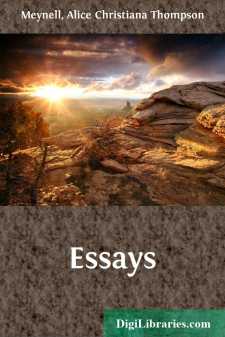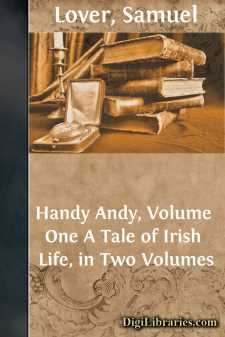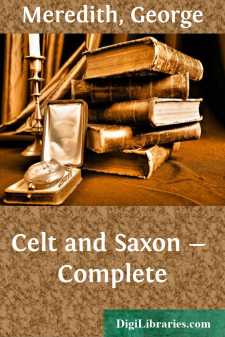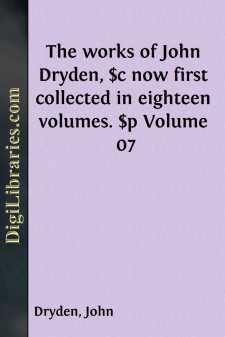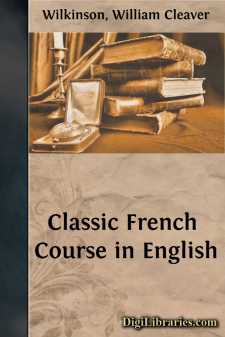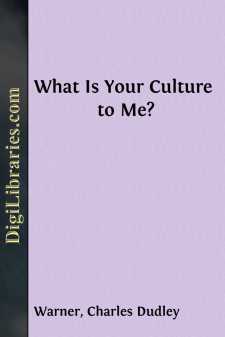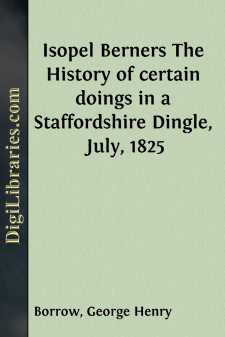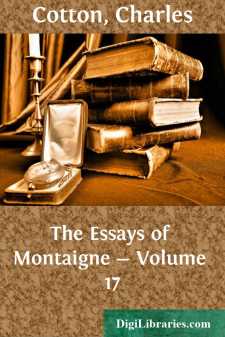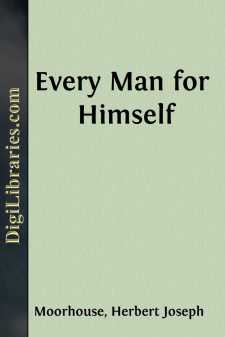Literary Collections
- American 84
- Ancient, Classical & Medieval 14
- Asian 1
- Australian & Oceanian 1
- Canadian 55
- Continental European 121
- English, Irish, Scottish, Welsh 179
- Essays 160
- General 24
- Letters 46
- Middle Eastern 1
Literary Collections Books
Sort by:
CERES’ RUNAWAY One can hardly be dull possessing the pleasant imaginary picture of a Municipality hot in chase of a wild crop—at least while the charming quarry escapes, as it does in Rome. The Municipality does not exist that would be nimble enough to overtake the Roman growth of green in the high places of the city. It is true that there have been the famous captures—those in the Colosseum,...
more...
by:
Samuel Lover
CHAPTER XXII The night was pitch dark, and on rounding the adjacent corner no vehicle could be seen; but a peculiar whistle from Dick was answered by the sound of approaching wheels and the rapid footfalls of a horse, mingled with the light rattle of a smart gig. On the vehicle coming up, Dick took his little mare, that was blacker than the night, by the head, the apron of the gig was thrown down, and...
more...
by:
Samuel Lover
ADDRESS I have been accused in certain quarters, of giving flattering portraits of my countrymen. Against this charge I may plead that, being a portrait-painter by profession, the habit of taking the best view of my subject, so long prevalent in my eye, has gone deeper, and influenced my mind:—and if to paint one's country in its gracious aspect has been a weakness, at least, to use the words of...
more...
by:
George Meredith
CHAPTER I. WHEREIN AN EXCURSION IS MADE IN A CELTIC MIND A young Irish gentleman of the numerous clan O'Donnells, and a Patrick, hardly a distinction of him until we know him, had bound himself, by purchase of a railway-ticket, to travel direct to the borders of North Wales, on a visit to a notable landowner of those marches, the Squire Adister, whose family-seat was where the hills begin to lift...
more...
by:
John Dryden
DUKE OF GUISE. A TRAGEDY. Ουτως δε φιλοτιμοι φυσεις εν ταις πολιτειαις το αγαν μη φυλαξαμεναι, τωιαγαθου μειζον το κακον εχουσι. Plutarch. in Agesilao.003In the latter part of Charles the Second's reign, the stage, as well as every other engine which could affect the popular mind, was eagerly employed in the...
more...
FRENCH LITERATURE. Of French literature, taken as a whole, it may boldly be said that it is, not the wisest, not the weightiest, not certainly the purest and loftiest, but by odds the most brilliant and the most interesting, literature in the world. Strong at many points, at some points triumphantly strong, it is conspicuously weak at only one point,—the important point of poetry. In eloquence, in...
more...
Delivered before the Alumni of Hamilton College, Clinton, N. Y., Wednesday, June 26, 1872 Twenty-one years ago in this house I heard a voice calling me to ascend the platform, and there to stand and deliver. The voice was the voice of President North; the language was an excellent imitation of that used by Cicero and Julius Caesar. I remember the flattering invitation—it is the classic tag...
more...
INTRODUCTION. I. The last century was yet in its infancy when the author of The Romany Rye first saw the light in the sleepy little East Anglian township of East Dereham, in the county distinguished by Borrow as the one in which the people eat the best dumplings in the world and speak the purest English. “Pretty quiet D[ereham]” was the retreat in those days of a Lady Bountiful in the person of...
more...
by:
Charles Cotton
There is, peradventure, no more manifest vanity than to write of it so vainly. That which divinity has so divinely expressed to us—["Vanity of vanities: all is vanity."—Eccles., i. 2.]—ought to be carefully and continually meditated by men of understanding. Who does not see that I have taken a road, in which, incessantly and without labour, I shall proceed so long as there shall be ink...
more...
CHAPTER I FOG Except for the lone policeman who paused beneath the arc light at the Front Street intersection to make an entry in his patrol book, Bay Street was deserted. The fog which had come crawling in from the lake had filled the lower streets and was feeling its way steadily through the sleeping city, blurring the street lights. Its clammy touch darkened the stone facades of tall, silent...
more...


